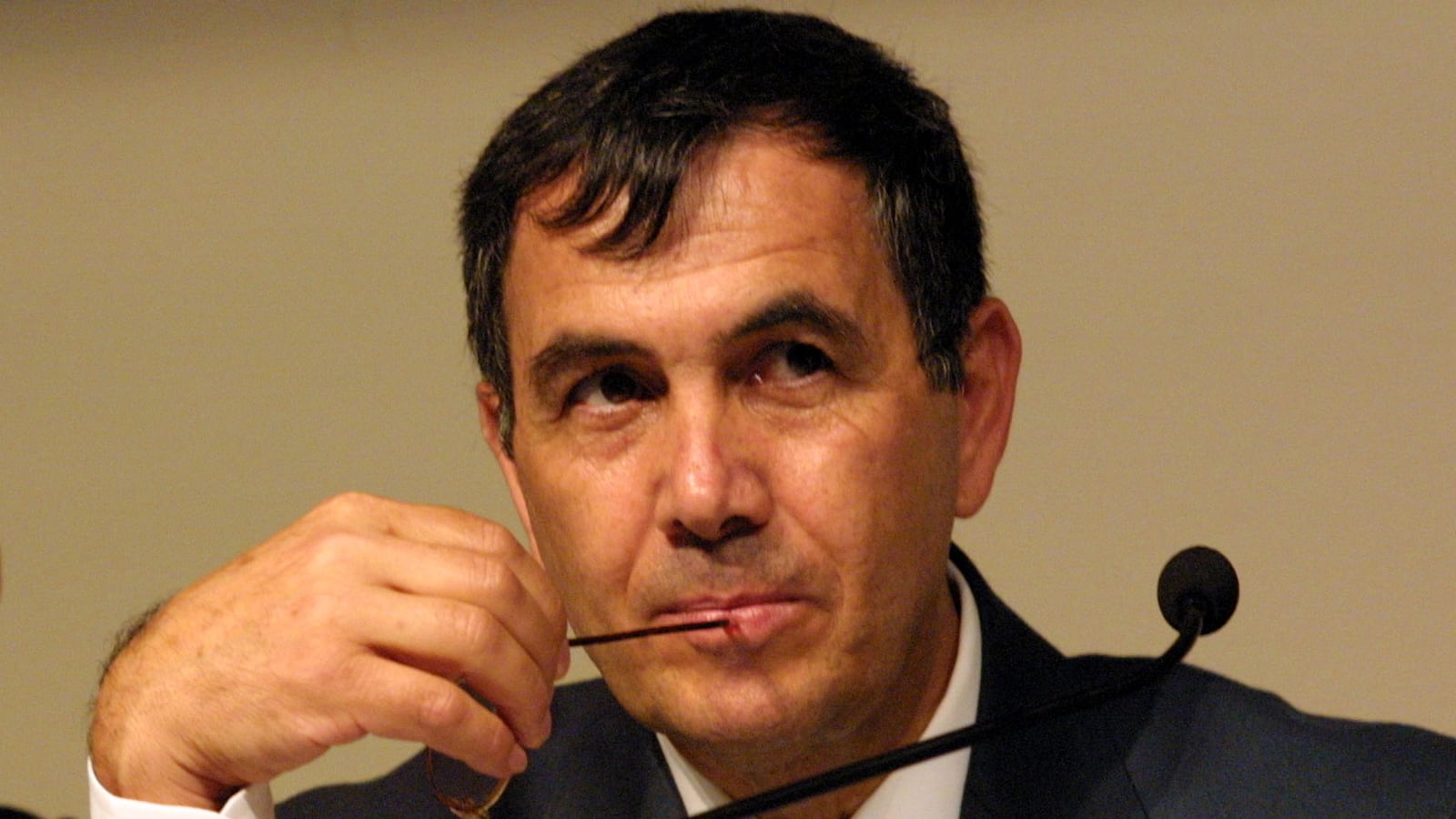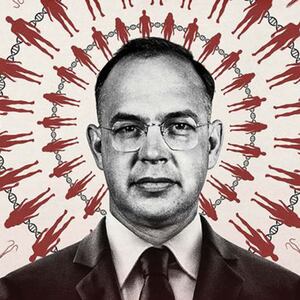A Kentucky fertility expert best known for claiming to have cloned a human embryo is now being accused of impregnating an unwitting patient with his own sperm.
The woman, Lexington resident Diane White, claims in a lawsuit filed last month that Dr. Panayiotis Zavos gave her his own sperm instead of a donor’s when she visited him for fertility treatment in 1988. (Zavos denies this claim.)
White says she was referred to Zavos by her gynecologist after she expressed interest in becoming pregnant via in vitro fertilization. At the time, Zavos was working out of Central Baptist Hospital (now known as Baptist Health Lexington) where, according to the suit, he purported to practice “fertility medicine—”even though at the time he did not have a medical degree and was not licensed to practice in the state of Kentucky.
At her first visit in late September of that year, White claims, Zavos told her he would use DNA testing to find a donor who matched her skin, hair, and eye color. At that visit and subsequent meetings, she says, Zavos identified the donor as a 24-year-old medical student at the University of Kentucky who, like White, had blonde hair and blue eyes.
White underwent her first IVF procedure in November 1988. She claims she picked up the sample from Zavos personally, and that he insisted she carry it to her gynecologist's office in her bra to keep it warm. That procedure did not result in pregnancy, but a second attempt using a new sample did. On October 3, 1989, White gave birth to a baby girl with dark hair, olive skin, and, as the suit puts it, “no Nordic features.”
The girl had several serious health issues upon birth, so White contacted Zavos to learn more about her donor’s medical history. On that call, White claims, Zavos sounded “very nervous” and insisted that none of his donors had any medical issues—a claim White says she found “rather odd,” since most people she knew had some kind of medical issue in their family.
The girl was discharged five days later and White had no further contact with Zavos, until—for unspecified reasons—her daughter took a DNA test in 2018. According to the suit, the DNA test uncovered no Nordic heritage, and revealed “beyond any reasonable doubt” that Zavos was the father of the child.
“Ms. White has been damaged by this breach, in that she never agreed to allow Dr. Zavos to fertilize her eggs, and never would have agreed to this, desiring a sperm donor whose physical features more closely resembled her own,” the lawsuit states.
In an email to The Daily Beast, Zavos called the allegations “false and unsubstantiated.”
A man who answered the number listed for Zavos in public records claimed the researcher was unavailable, then laughed when told about the allegations against him. This person later texted The Daily Beast to say that Zavos was “out of the office,” but provided the following statement:
“The claims are false and unsubstantiated. They never confirmed the validity of any DNA testing and refused to do so, although Dr. Zavos’ team offered to do so. The case has no base and validity and it’s all about money! The attorneys for Prof. Zavos and the Hospital know how to defend the case and the case will be thrown out once the court has [a chance to hear] the merits of the case.”
White’s lawsuit notes, somewhat casually, that Zavos “gained worldwide notoriety for having claimed in 2004 to have cloned a human embryo and implanted it into a human being.” That particular article, in which Zavos claimed to have cloned embryos by mixing genetic material from dead people with cow eggs, was yanked from the journal that accepted it pre-publication.
But Zavos surfaced again in 2009, claiming he cloned 14 human embryos and transferred them into the wombs of four women at an undisclosed location in the Middle East. None of those purported pregnancies resulted in live births, and, as the lawsuit notes, “to date, Dr. Zavos has produced no evidence that he has ever cloned a human embryo, despite his numerous claims.” Still, the news sparked outcry from ethicists and other scientists, and was declared “ethically, scientifically, and clinically unacceptable” by the American Society for Reproductive Medicine.
In response, Zavos told ABC News he was "not going to be judged by the politicians or clergymen, but rather by the fertility or infertility patients that want a child of their own."
"Those clones are going to vote for those politicians some day,” he said at the time. “And they will get to love them."
Zavos is not the first doctor accused of impregnating an IVF patient with his own sperm without their knowledge. One Detroit doctor was accused last year of fathering hundreds of children by using his own sperm with patients, sometimes without their consent. In response to stories like these, a growing number of states are passing “fertility fraud” laws that criminalize such practices.
Zavos has not been charged with a crime in connection with this case, but he’s had a previous brushes with the law. Once described as an “entrepreneur” by The New York Times, Zavos opened three different companies in Kentucky between 1988 and 2013, all of which were administratively dissolved within a decade for failing to file their annual reports.
A fourth company, Zavos Diagnostic Laboratories, was created in 1997 and dissolved in 2013—shortly before Zavos was charged with knowingly selling misbranded medical devices. (The devices included the Zanos Home Conception Pak and the Zavos Seminal Collection Device.) He pleaded guilty and was sentenced to three years of supervised probation and a $1,000 fine, and his company agreed to pay $150,000.
Zavos also appears to be on the outs with the hospital that previously employed him. In a statement to The Daily Beast, Baptist Health spokesperson Ruth Ann Childers said the hospital terminated its 10-year contract with Zavos in 1994, based on his “failure to abide by the terms of the contract in addition to the policies, procedures and rules of the Hospital.”
“If the allegations in this complaint are determined to be true, Central Baptist had no knowledge of such conduct, nor would the hospital have sanctioned it,” Childers said.








